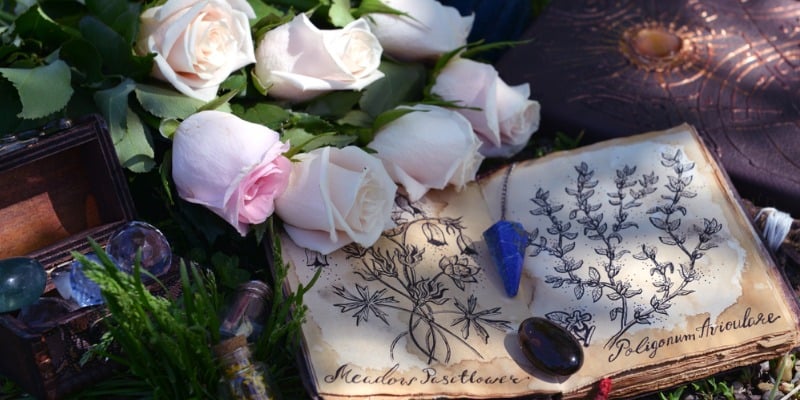
Flowers and folklore have long been intertwined, with many of our favourite blooms weaving their way into magical spells and superstitions over time.
Plants have been used for their healing properties for centuries and Greek mythology is brimming with memorable origin stories (lilies springing from droplets of an angry Hera’s breast milk, anyone?), but there are plenty of long-held beliefs linked to flowers that you may never have heard before.
Here are a few of our most fantastical favourites:
Rose (Rosa)
Legends linked to this timelessly beautiful bloom are far too numerous to list, but there is one rose-related superstition that we particularly enjoy. In Roman times, a rose would be hung or carved over a dinner table or meeting space to ensure that any conversations held beneath it (‘sub rosa’) would stay secret. That’s why today, the decorative plaster surrounding a pendant light fitting is known as a ‘ceiling rose’.
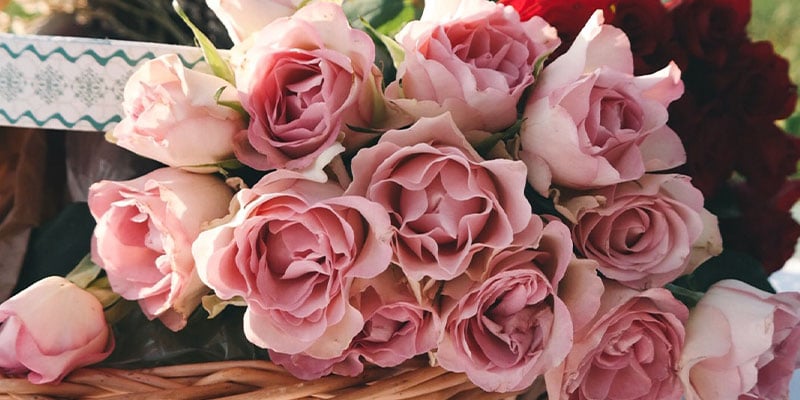
Primrose (Primula vulgaris)
If you’re walking in a wood and see a large patch of primroses, tread softly, as you’ve stumbled upon the gateway to a fairy kingdom. Irish folklore tells that leaving these springtime hedgerow flowers on doorsteps attracts fairies, who will then bless the house and protect it. Just don’t let your primroses die, lest you terribly offend them.
Chrysanthemum (Chrysanthemum x morifolium)
Chrysanthemums are revered in Asia as the symbol of a long, luck-filled life. In China, superstition dictates that you must drink chrysanthemum wine on the ninth day of the ninth month to enjoy health, peace and old age – a good excuse to imbibe, if ever we’ve heard one.
Over in Greece, ‘mums are believed to protect against evil spirits, hence why they’re often seen adorning graves. Never be tempted to pick one from a cemetery, as doing so is thought to bring bad luck, nightmares and headaches.
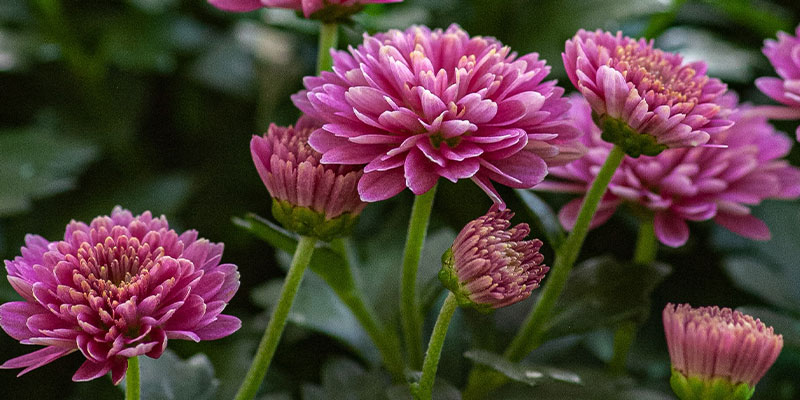
Hag’s taper (Verbascum thapsus)
For centuries, tall woolly stems of this common weed, better known as mullein, have been dipped in fat and lit as candles to ward off black magic (or, indeed, to practise it…). In Homer’s Greek epic, The Odyssey, the gods give hero Odysseus a stalk of mullein for protection against the evil temptress, Circe.
Mullein still features in herbal remedies today; it has anti-inflammatory properties that are said to help with coughs and colds.
Lady’s mantle (Alchemilla mollis)
This humble garden stable with its tiny acid green blossoms and frilly cup-shaped leaves was used by 18th-century European alchemists (hence its scientific name) to collect dew, which they used to try and turn base metals into gold.
It is the favourite flower of Camilla, Duchess of Cornwall, who called it ‘a must for every gardener’ when the RHS Chelsea Flower Show went virtual in 2020. Discover which blooms the rest of the royal family chose here.
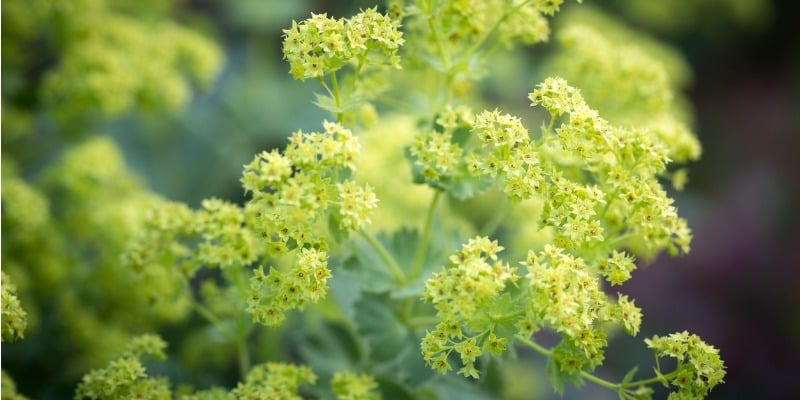
Parsley (Petroselinum crispum)
Known as ‘the Devil’s herb’, parsley sparked terror in ancient times due to its strong association with death. Superstition had it that its seeds took so long to germinate because they had to go to the Devil and back nine times before sprouting.
Folklore blog Legendary Dartmoor tells how only women were supposed to plant parsley seeds, and only when their parish church bells were ringing. Many shunned it altogether, however, believing that to sow it was to invite death into their family before the end of the year.
On a similarly bleak note, old witches prescribed the eating of parsley thrice daily for three weeks if a pregnant woman wished to abort her baby. But, more positively, placing a sprig on your forehead was considered a failsafe headache cure or hangover preventative.
Orchid (Orchidae)
Orchids have long been associated with fertility because their name is derived from ‘orchis’, the Greek word for ‘testicles’. Please don’t try this at home, but supposedly, if you eat small orchid tubers while pregnant, you’ll give birth to a baby girl. If your male partner eats large ones, you’ll welcome a son. It goes without saying that this superstition has no basis in science!
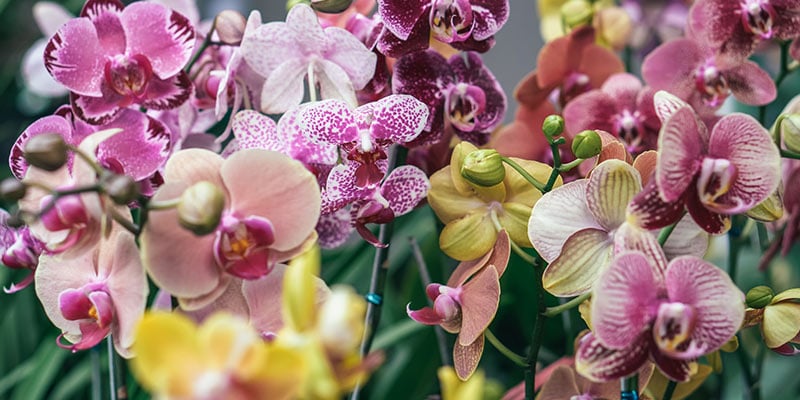
Foxglove (Digitalis)
Charming as the thought of foxes wearing gloves may be, the name ‘foxglove’ is thought to be derived from ‘folk’s glove’, according to renowned Victorian herbalist, Maud Grieve. Back in the 14th century, fairies were called ‘good folk’, and they lived inside the stately spires of these bell-shaped flowers. Foxgloves are heliotropic, meaning they follow the sunlight, but past belief held that they were moving towards any fairies passing by.
Foxgloves used to be put to nefarious use as a poison, but nowadays their toxic components are used in some modern cardiac medicines in small doses.
Daisy (Bellis perennis)
In the Victorian language of flowers, daisies represent positivity, truth and innocence. These pretty meadow blooms have long been a childhood favourite, not only for making daisy chains, but also for revealing whether or not the cute boy next-door loves you. “He loves me, he loves me not,” goes the soothsaying chant, as you pick off each petal one by one, hoping the last petal falls on “he loves me”.
Back in medieval times, young women used them to respond to declarations of love from their suitors. Pinned a daisy to her blouse meant the proposal had been accepted, but wearing one on her cape meant her admirer had been spurned.
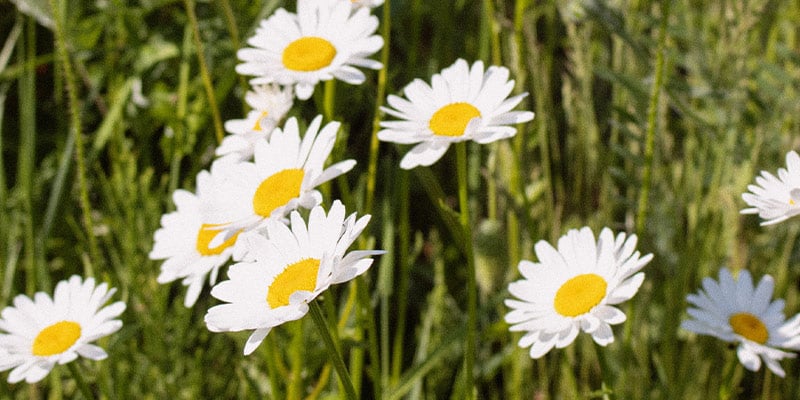
Poppy (Papaver)
Farmers have traditionally scattered their fields with poppies in a bid to ensure a plentiful crop and make their worries disappear. Linked to water and the moon, this flower of remembrance has long been used in sleep-related spells. Poppy seeds are thought to conjure love when mixed into food, or fertility and good fortune when worn or carried as a charm.
Dandelion (Taraxacum officinale)
If the daisy above came up trumps and told you that he loved you, you can use a dandelion to find out when you’ll marry. Find a fluffy seed head, blow it into the air and count how many seeds stay clinging to the stalk – that’s how many years you’ll have to wait for the wedding. Or how long you have left to live, according to some beliefs.
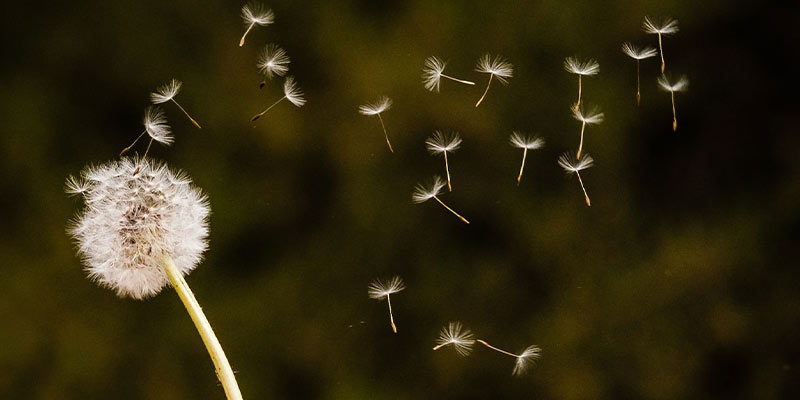
Rosemary (Salvia rosmarinus)
In the Middle Ages, rosemary was hung in doorways to ward off evil spirits and tossed into graves to ensure that dead loved ones were never forgotten. Today, of course, this aromatic herb is simply beloved by chefs everywhere.
Today, flowers of all kinds are a gift that everybody loves to receive, from classic roses to exotic orchids. Browse our range of luxury hand-tied bouquets, all available for next-day UK delivery.


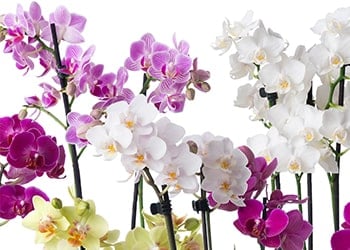

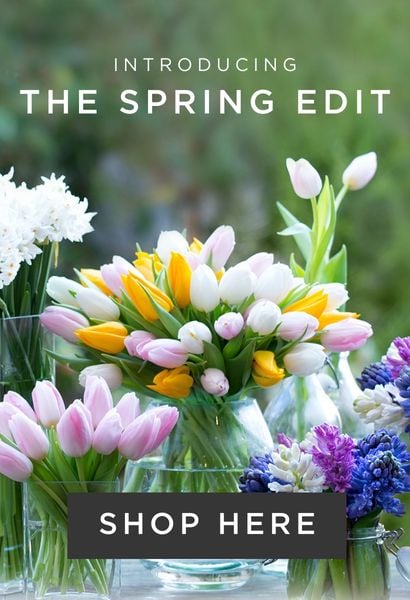


